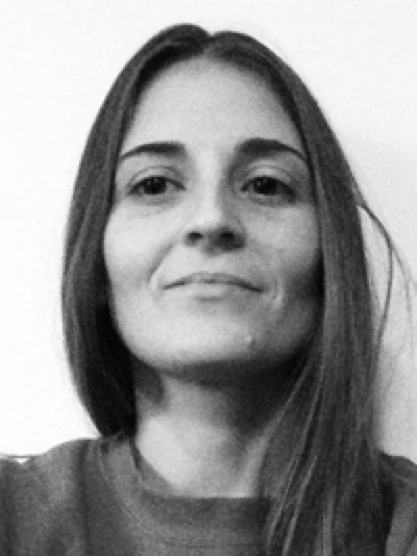Vittoria Mencarini

XXXIII Cycle - (A.A. 2017-2018)
IDAUP
Home Institution: University of Ferrara
Scholarship
Curriculum: Urban Planning (ICAR15)
Research Topic: Landscape architecture, Urban resilience
Tutor DA-UNIFE: Prof. Luca Emanueli
Tutor Polis University: Daniela Kavaja
External Experts: Nicola Marzot, Gianni Lobosco
Nationality: Italian
Email: mncvtr@unife.it
Profile
Biography
Born in Urbino in 1986, Vittoria is an architect graduated in Ferrara in 2012. During the university period she spends one year in Munich (TUM) with an Erasmus Programm and her last study year in Chile as visiting research at PUC (Pontificia Universidad Catolica de Santiago). The research period ends with a thesis degree project, untitled: “Re.T.E. Red de Turismo Etnorural, Participated architecture with the indigenous mapuche communities, Pucon, Chile”. It concerns the project of places that, designed with other users and with the support of the local governance, are the physical spaces where the communities feel identified and represented, and serve as a cultural reaffirmation points, opening to processes of cultural trade and innovation. In 2014 wins a scholarship for attending a Postgraduation master in “Landscape Architecture” at IUAV institute in Venice. Since 2014 she works in Italy as Landscaper. In 2017 she starts the International Ph.D. course at the University of Ferrara, carrying out her research studies around urban resilience and landscape architecture, under the supervision of Prof. Luca Emanueli.
Research skills
Landscape | Urban resilience | Territorial systems | Public spaces | Participated architecture
Scientific activities
ORCID ID:
0000-0002-1862-4060
IRIS UNIFE ID:
rp11240
Doctoral research
DESIGNING SOIL IN THE ANTHROPOCENE ERA:
What’s its role in a framework of landscape resilience? Soil as fundamental design element
Soil is a non-renewable resource, able to provide functions and services for local communities. The millennial transformations of the territory, have modified soils structure and composition, threatening some ecosystem functions essential for the support of the human habitat. A systemic approach is needed for coordinating the man-made metabolic procedures concerning inevitable phenomena of urban and territorial transformation and ecosystems protection, admitting that one can be consequent and functional to the other. The research’s proposal moves from a critical rereading of soil as design element that combine to build the scenery of contemporary territories, in the will to look for its role in the framework of landscape resilience. The sustained hypothesis is that one can recognize the soil as a design element identifying actions between different spatiality (undeground-surface), designed to find renewed forms of management and project for the contemporary territories. The desired outcome will be effective and detailed design proposal and possible integrated design sceneries of territorial rehabilitation, able to integrate in a systematic project configuration infrastructural needed that could bring positive impacts in social, economical and environmental terms, increasing landscape resilience, preserving soil ecosystem functions, reducing cost for public administration and the environmental impact on territorial scale. The result will be the design of renewed and highly contextualized landscapes, as consequence of conscious and sophisticated actions. This approach allows a territorial upgrade to contemporary objective and needed, increasing the level of compatibility between the evolution of the human habitat and the maintenance of regeneration times of nature, necessary for preserving ecosystem services.
Keywords
Landscape | Adaptation | Infrastructure | Environment | Periurban

